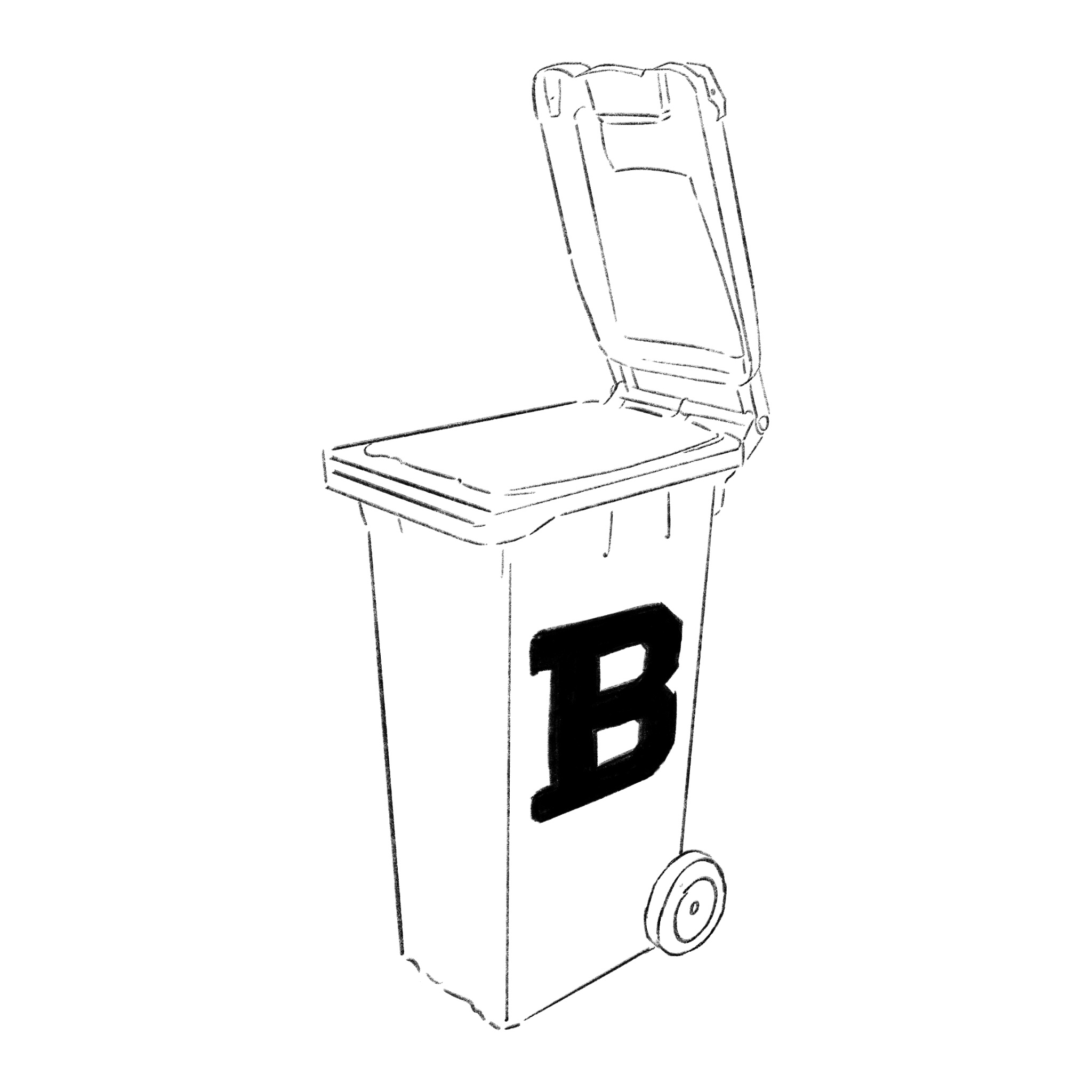Bowdoin’s extra million pounds of waste
May 2, 2025
 This
piece represents the opinion of the author
.
This
piece represents the opinion of the author
.
 Henry Abbott
Henry AbbottIn the past three years, Bowdoin averaged 3.3 million pounds of trash, recycling and food waste per year—a significant increase from the three years before the pandemic, where the school averaged only 2.35 million pounds. These extra million pounds of waste per year are actively contributing to an environmental crisis that is having disastrous impacts worldwide. The greenhouse gas emissions associated with decomposition in landfills and supply chain management are directly fueling the floods, wildfires and natural disasters that are destroying communities around the world. This additional waste is also directly working against the goals of the College. Bowdoin’s plan to be fossil-fuel-free by 2042 is reliant on the reduction of waste-related greenhouse gas emissions. This means that additional waste increases operating costs for the school, both through the direct price of waste disposal and through the purchase of additional carbon offsets to maintain carbon neutrality.
I have spent the past semester interviewing faculty and staff around campus to assess the College’s waste management practices. It has become clear that staff at Bowdoin are making an effort to reduce their waste. Faculty from nearly every department are prioritizing sustainability in their work, and many continue to run programs such as Freecycle, the office reuse and supply store and dining menu audits, which are specifically designed to promote zero-waste practices. Yet, despite these efforts from faculty and staff, we are continuing to grow more wasteful.
While we are not sure where this increase in waste has come from, it is certainly unwarranted. There has been no significant change in policy. Bowdoin does not have 40 percent more students, or 40 percent more buildings or 40 percent more faculty. Bowdoin hasn’t changed—our rate of consumption has.
This problem isn’t unique to Bowdoin. Across the country, waste has increased significantly since the pandemic, primarily due to changing consumer preferences. A nationwide shift towards impulse purchasing and online shopping since 2020 has resulted in significant increases in single-use plastic, packaging materials and transportation emissions. There has been a similar trend towards online purchasing and increased consumption at Bowdoin. Staff at the mail center have experienced a significant increase in incoming packages, with students now receiving nearly 70,000 mail items per year.
This shift towards unnecessary consumption must be met with a cultural change in the way that we think about waste. Too often, we forget to consider the full life cycle of the items we throw away. We forget about the greenhouse gases that are emitted when we ship products across the world. We forget that Bowdoin staff have to deal with everything we buy or throw away. We forget that what we throw away will sit in a landfill for hundreds of years. It is no longer enough to just print double-sided or buy a reusable water bottle. If we want to solve this problem, waste can no longer be an afterthought; it must be a priority.
This cultural shift must start with direct efforts from the College. The reduction of waste on campus is reliant on students, faculty and staff being well educated and consciously thinking about the waste they are producing. Bowdoin must continue to develop both measurable and achievable waste reduction goals and a plan to achieve them. Waste-related education must be integrated into orientation and curriculum, and posters and messaging must be consistent and widespread around campus. Bowdoin students will only make waste reduction a priority when the College makes a coordinated effort to increase the resources available to them.
However, students still play a large role in reducing waste on campus. A problem like waste requires collective action, but collective action will never happen without individuals. We can either continue with our overconsumption and deal with the environmental degradation associated with our actions, or we can make more sustainable choices that will benefit our school and the environment. We can all make the choice to reuse, thrift, shop locally or not shop at all, and we can all educate ourselves and have meaningful conversations with our peers about waste at Bowdoin. Every single student has the ability to reduce their waste and contribute to a cleaner, healthier and more sustainable campus; we just need to make the right choices.
Ethan Hatcher is a member of the Class of 2027.

Comments
Before submitting a comment, please review our comment policy. Some key points from the policy: